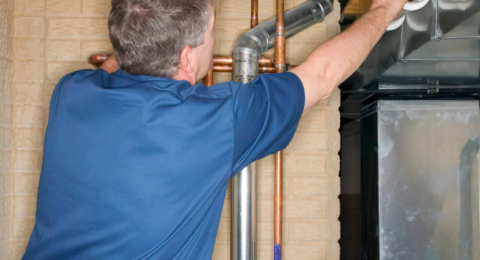
Buying a new home is an exciting milestone filled with anticipation and dreams of the future. However, amidst the excitement, it's essential not to overlook the importance of a home inspection. While many assume that a newly constructed home is free from defects or issues, the reality is that even new builds can have hidden problems that may not be immediately apparent. This is where a thorough new construction inspection comes into play, providing homeowners with the peace of mind they need to fully enjoy their investment. Likewise, as the home settles and appliances and systems are used, things can come up. A home warranty inspection helps identify issues before the builder’s warranty expires. Both are important.
- Understanding New-Build Home Inspections:
A new-build home inspection is a comprehensive evaluation of a newly constructed home's structural integrity, systems, and components. It is typically conducted before the builder's final walk-through with buyer prior to closing. This gives buyers time to address any issues prior to moving in and helps ensure a smooth transition into the home. The inspection aims to identify any construction defects, code violations, or deficiencies.
- Identifying Construction Defects:
Despite the best intentions of builders, construction defects can occur due to factors such as poor workmanship, inadequate materials, or design flaws. These defects can range from minor issues like cosmetic imperfections to more serious structural problems that compromise the home's safety and longevity. A new-build home inspection helps identify these defects right away, allowing homeowners to address them promptly before they escalate into more significant issues.
- Ensuring Code Compliance:
Building codes are established to ensure the safety, health, and welfare of occupants in residential structures. However, compliance with these codes is not always guaranteed, especially in the fast-paced construction industry. A new home inspection evaluates whether the home meets current building codes and standards, helping homeowners ensure that their property is safe and structurally sound.
- Maximizing Warranty Coverage:
Most builders offer warranties to cover certain defects or issues that may arise within the first year of homeownership. However, these warranties often have specific terms and conditions, and coverage may vary depending on the builder and the jurisdiction. Many new-build homeowners also opt to have a warranty inspection done around the 11th month of ownership to help identify any issues that may be eligible for warranty coverage, maximizing their ability to leverage these benefits before they expire.
- Peace of Mind for Homeowners:
Perhaps the most significant benefit of a new home or home warranty inspection is the peace of mind it provides for homeowners. Buying a new home is a significant investment, and knowing that it has been thoroughly inspected by a qualified professional can alleviate concerns and uncertainties. By addressing any potential issues early on, homeowners can enjoy their new home with confidence, knowing that it is safe, secure, and built to last.
In conclusion, new-build inspections are a vital step in the home buying process, offering homeowners peace of mind and protection against unforeseen issues. By identifying construction defects, ensuring code compliance, and maximizing warranty coverage with a home warranty inspection, these inspections empower homeowners to make informed decisions and safeguard their investment for years to come. Whether you're purchasing your first home or upgrading to your dream house, investing in a home inspection is a decision you won't regret.
A new-build inspection helps ensure a smooth move-in process without any major issues, and a home warranty inspection helps identify anything that has come up in your first year of ownership before your builder warranty expires.
If you do your new-build inspection with us, we’ll give you $100 off your home warranty inspection.